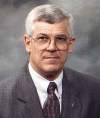Editorial comment
Walking the walkJohn Tobin, executive director of The Energy Literacy Project, Inc., views the energy industry as being very segmented and very competitive. He says the industry’s trade association interest groups and trade publications are no exception, as each jealously promotes its own constituents and agendas. "But," he says, "if we are to benefit from a sustainable energy policy, all parts of our industry must seek to improve the knowledge base, indeed, the literacy of the public, about the role energy plays in our daily economic well-being and in our quality of life." We must agree – we’re good at "talking the talk," and whining when policy does not come to our rescue. Despite what is served regularly in the general media, the public now demands sound, balanced information, and it is time for us to "walk the walk." The energy industry must do its part to develop an energy-literate public. The Energy Literacy Project (ELP) is an educational and informational corporation designed to achieve a cultural change in the way society views energy through its realization of energy’s role in our economic well-being and in our quality of life. The group contends that having a public informed (literate) about energy is the only way a sustainable energy policy will ever be realized. Such policy, whether it is pro-environment, pro-development or some compromise, must have public support, or it will be a short-term fix at best. The ELP views energy as BTUs from any source, including conservation and efficiency. As such, the segment of the industry doing business in this area has a contribution to make to energy supply. However, as part of public awareness, this message must:
Government does have a role in lowering energy prices to the public. The current environment, with changing regulations and taxation, creates a feeling of uncertainty that is reflected in a risk premium and volatility in price. However, stable policy will result in lower costs, which will be passed on to the consumer. Basic elements of energy literacy. In an opinion article written for the ELP, Paulette Whitcomb defines elements that should be above each industry’s parochial interests and above partisan politics: Supply and demand. Energy is a commodity, just like automobiles, lettuce and housing. While supply is affected by a number of factors, such as wars, weather, tariffs, transportation, regulations, etc., scarcity or abundance dictates price, thus supply and demand will balance – at a price. Elasticity. Supply and demand respond to price. If demand drops, prices follow. As supply drops, because costs of delivering the product are higher than the prices fetched by the product, prices rise. Profit motive. Those who provide the energy commodity, like car manufacturers, farmers and housing contractors, are in business to make a living – not to lose money. Profit is not a dirty word for any business – loss is. If businesses lose money long enough, they go broke, employees get laid off and the country descends into a recession. Choices and tradeoffs. Consumers are free to make decisions with every commodity, and tradeoffs are inherent in every decision. If automobile prices get too high, consumers quit buying; if gasoline prices jump, consumers restrict their driving to what’s absolutely necessary. No customer is entitled to low prices just because the commodity is crucial. There is no Constitutional right that overrides the Law of Supply and Demand. Risk. There are risks in energy use, no matter what the energy source. Included are the chances that investments will be lost; restrictions will be placed on transportation methods, siting of plants, facilities, dams, etc.; and health issues will preempt energy development. The message. It will take money to educate the public to the fact that energy is not a God-given right. They must be convinced that energy is a commodity, which responds to market signals. Next, they must believe that energy is a primary commodity crucial to the world’s economic well-being and quality of life – and, as such, deserves the public’s constant interest, just like sports scores and weather reports. Such a message represents a radical turnaround in the public’s perspective, and such educational reforms do not happen overnight, nor inexpensively. While the energy industry needs to continue funding its trade associations that work to educate the politicians, it also must make core investments on a continuing basis toward the education of other citizens. In light of present robust cash flows (in the upstream sector, at least), industry should seize upon the demand for knowledge and fund an ongoing program. To bolster the effect of its public educational efforts, the ELP is taking the position that the messenger is as important as the message. As a result, the group is negotiating with organizations such as the National Geographic Society to undertake joint programs. With its worldwide recognition and credibility, the society could do much to allay the energy industry’s image baggage and open doors that, otherwise, may remain shut. The ELP is a non-profit corporation attempting to
achieve a cultural change in the way society views energy. ELP’s role is to be a facilitator, coordinator
and consolidator of current and developing educational and informational material. For additional information,
see ELP’s web site at: www.energy-literacy.org. |



